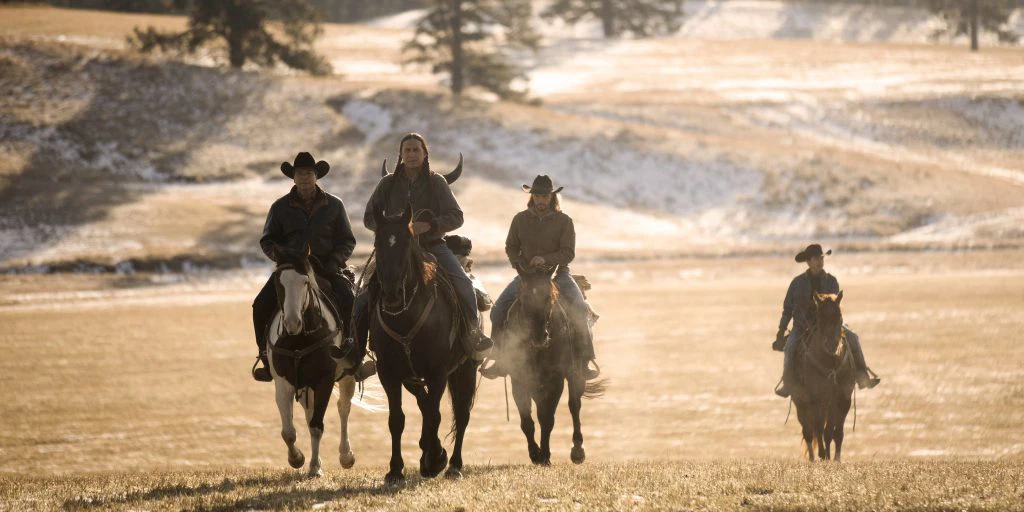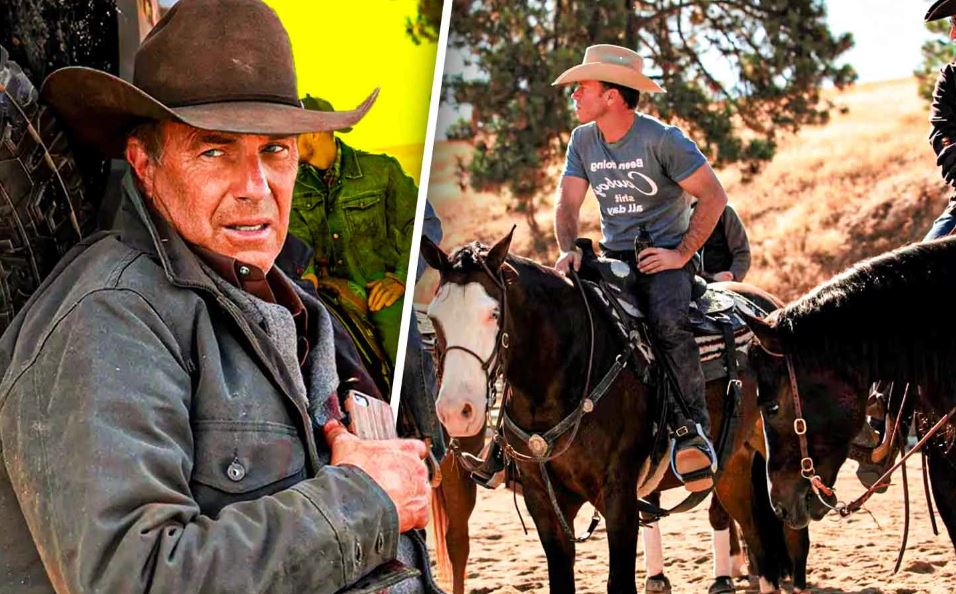Taylor Sheridan’s Yellowstone has shaped much of modern television, even beyond the scope of Westerns. But in its endgame, the series picks up more heat due to its Kevin Costner controversy rather than the increasingly convoluted storyline after four and a half seasons of interfamilial dynamics and political power struggles.
As Yellowstone steps into the second half of its fifth and final season, the plot picks up, as always, with Beth and Jaime Dutton at the center of the volcanic arc of the series. But long before the siblings became the primary point of contention for each other (as well as the audience, at this point), there was the mighty John Dutton who could put armies down with a single command.
Taylor Sheridan Invokes the Importance of Kevin Costner

To say there would be no Yellowstone without Kevin Costner would be an understatement. The Paramount rancher series that plays out like an urban world’s countryside cowboy fantasy chalks up its success to the show’s timing. Not only does Yellowstone fit in perfectly with the politically raging climate of the modern world but it also feeds into the progressive notion of “power is power” instead of the archaic adage: survival of the fittest.
Within the fast-paced world of the Yellowstone Dutton Ranch, the sun sets on the reigning era of Kevin Costner’s John Dutton. As such, the seventh-generation ranchers vie for power, each serving their own selfish ambitions and fighting their way to the top of the family hierarchy. Without Costner, the subtle dynamic would be lost to the audience. And Sheridan was the first to realize it.
In an interview with Men’s Journal, Sheridan claims:
It was Kevin or bust for this. There’s also a certain virility to him. He’s in his 60s, yet he still feels like he can whip you in a fight. That was an important balance for this character.
While that did serve in favor of the series for the first four and a half seasons, Costner’s feud with Yellowstone creator Taylor Sheridan has posed as a major hurdle for the story’s finale arc in Season 5, Part 2. Considering Sheridan’s dislike toward writing off characters, it seems like a dilemma to explain John Dutton’s absence from the series’ final leg.
Yellowstone Holds a Critical Lens Over the Old West

Despite the absolute violence that coats the episodes of Yellowstone, there is a side to the series that undercuts the politics and demonstrates how the Western lifestyle faces the threat of extinction. Like a civilization out of time, the West lives off of nostalgia and romanticism associated with a bygone era In the modern context, Sheridan’s series about greedy land developers and scheming politicians feels all too real.
The urbane world increasingly encroaches on the old-range life, buying up vanity ranches, establishing microbreweries, and serving as seasonal tourist traps. Sheridan calls it “the gentrification of the West” and points out:
Now people have second jobs and do this as a lifestyle as opposed to a business. People don’t like real hard lifestyles.
The Yellowstone creator believes the novelty of the ranch lifestyle may fade over time for outsiders as compared to generational ranchers. But he also demonstrates through his Paramount series how the lifestyle has become economically unsustainable in the modern world.
In that sense, Yellowstone is more relevant than ever in bringing a lost way of life to the forefront of the societal issues as it exists today instead of cinematic adaptations depicting gunslingers in period pieces.
Yellowstone is available to stream on Paramount+
